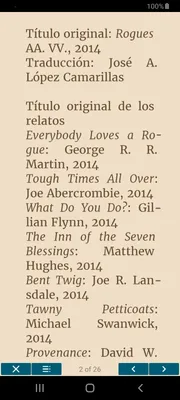Hello friends of Hive Book Club.
Criminality is like the weather. Getting angry about it is a foolish attitude. Since the dawn of humanity, crime has been a social custom as everyday as sex or commerce. I don't mean by this statement to erect lawbreakers as heroes. Rather, I prefer to understand them than to judge them.
It's obvious that the criminal has a mentality very different from that of the common man. I had an uncle who was a policeman, a lover of criminology, whom I overheard saying to my father in conversation: "Good thieves have the patience of cats. They observe and wait as long as necessary. And when they think the time is right, they strike."
Also, in a hospital waiting room, I casually overheard a dialogue between two administrative staff. One reproached the other: "The thing is, you talk too much. Those of us who do little bad things have to keep quiet." I remember being amused by the use of the diminutive (cositas - "little things"). As if that person (who stole, or extorted, or blackmailed?) was downplaying the importance of their acts, harmful to society. I understood that their normality was different, perhaps not very distinct from that assumed by natural predators. No eagle, lion, or shark suffers remorse after killing its prey.

Rogues (2014), compiled by George R.R Martin and Gardner Dozois. Cover of the spanish traslation
For these reasons, I was impressed by the stories collected in the anthology Rogues (2014), compiled by the celebrated George R.R. Martin (A Song of Ice and Fire) and Gardner Dozois. The book features sacred signatures like Martin himself (who introduces a long story that 10 years later would become the series Fire & Blood, the Targaryen saga), Neil Gaiman, Connie Willis, Joe Abercrombie, among other masters and various literary genres.
For its depiction of the criminal mentality, among the stories I enjoyed most is Tawny Petticoats, written by Michael Swanwick. In a post-utopian New Orleans, the famous con artists Darger and Surplus operate. This time in cahoots with a beautiful deceiver called Tawny Petticoats. Whom do they aim to deceive on this occasion? None other than the three great magnates of the city. Mayor Threejewels, who controls the sex trade; Mr. Bones, an unusual futuristic creditor who collects the debts of insolvent citizens by turning them into zombie slaves; and Duke Laffitte, owner of maritime commerce. I read the story in one sitting. A breathless game of six very cunning minds. Darger's personal prejudice is surprising, where social functionality should not be subordinated to ethics. Addressing the three great lords, he states: "Corruption is a necessary companion to any functioning government and we support it unconditionally." If you read what I commented above about the "cat-thieves" and their "little things," you'll understand that this idea is the Norm for many criminals. Just as the criminal is another breed, their impunity is also one of humanity's most ancient social customs. The reptile known as the Komodo dragon bites the leg of a large herbivore. Then it follows from afar and waits for the venom to take effect and the beast to collapse. In the same way, great criminal minds have incorporated the saying "cunning over strength" as a second nature. They are always more cunning than the common man and always have plans B and C and D, etc. Just like Darger and Surplus.

Some titles and authors. The story What Do You Do? by Gillian Flynn is another tale I will never forget.
If you wish to know this twin race of Humanity, known as Criminality, better, read Rogues; but beware!: don't judge the characters, don't be scandalized. A biologist always observes the habits of the tiger, the boa, or the orca – those fascinating beasts – with equanimity.

English translation done using DeepSeek.
VERSIÓN EN ESPAÑOL
Los canallas son una raza antigua
Hola amigos de Hive Book Club.
La criminalidad es como el clima. Es una actitud tonta enfadarse con ella. Desde los albores de la humanidad, la criminalidad ha sido una costumbre social tan cotidiana como el sexo o el comercio. No pretendo con tal afirmación erigir como héroe al trangresor de las leyes. Más bien prefiero entenderle que juzgarle.
Es obvio que el delincuente tiene una mentalidad muy distinta a la del hombre común. Tuve un tío policía, amante de la criminología, a quien, en conversación con mi padre, le oí decir: "los buenos ladrones tienen la paciencia de los gatos. Observan y esperan todo el tiempo necesario. Y cuando lo creen oportuno, atacan".
También en la sala de espera de un hospital, escuché casualmente un diálogo entre dos administrativos. Uno reprochaba al otro: "es que tú hablas mucho. Quienes hacemos cositas malas tenemos que hacer silencio". Recuerdo que me divirtió el uso del diminutivo (cositas). Como si esa persona (¿que robaba o extorsionaba o chantajeaba?) le restara importancia a sus actos perjudiciales a la sociedad. Entendí que su normalidad era otra, quizás no muy distinta a la que asumen los depredadores naturales. Ningún águila, león o tiburón sufre remordimientos después de matar a sus presas.

Rogues (2014) Cubierta de la traducción al español
Por tales razones me impresionaron los relatos reunidos en la antología Canallas (2014), cuyos compiladores fueron los célebres George R.R. Martin (*Canción de Hielo y Fuego) y Gardner Dozois. En el libro aparecen firmas sagradas como el propio Martin (que introduce un relato largo de lo que 10 años más tarde sería la serie Blood and Fire, la saga de los Targaryen), Neil Gaiman, Connie Willis, Joe Abercrombie, entre otros maestros y diversos géneros literarios.
Por su dibujo de la mentalidad de los criminales, entre los relatos que más disfruté se encuentra Bruna Enaguas, escrito por Michael Swanwick. En una Nueva Orleans post utópica actúan los famosos estafadores Darger y Excedente. Esta vez en complicidad con una preciosa engañadora llamada Bruna Enaguas. ¿A quiénes pretenden engañar en esta ocasión? Nada menos que a los tres grandes magnates de la ciudad. A la alcaldesa Tresjolie que controla la vida prostribularia; al señor Hueso, un insólito acreedor futurista que se dedica a cobrar las deudas de los ciudadanos insolventes convirtiéndolos en zombies esclavos; y al Duque Laffite, dueño del comercio marítimo. Leí el relato de una sentada. Un jadeante juego de seis mentes bien astutas. Sorprende el prejuicio personal de Darger donde la funcionalidad social no debe estar subordinada a la ética. Ante los tres grandes señores, afirma: "La corrupción es una compañera necesaria de cualquier gobierno que funcione y la apoyamos incondicionalmente". Si leíste lo que comenté más arriba sobre los "ladrones-gatos" y sus "cositas", entenderás que esta idea es la Norma para muchos criminales. Tanto como el criminal es otra raza, la impunidad de este es también una de las costumbres sociales antiquísimas. El reptil conocido como dragón de Komodo, muerde la pata de un gran herbívoro. Después le sigue de lejos y espera a que el veneno haga efecto y la bestia se desplome. De igual manera las grandes mentes criminales han incorporado como una segunda naturaleza el refrán "más vale maña que fuerza". Siempre son más astutos que el hombre común y siempre tienen planes B y C y D, etc. Igual que Darger y Excedente.

Algunos títulos y autores. La historia What Do You Do?, by Gillian Flynn es otro de los relatos que nunca olvidaré.
Si deseas conocer mejor a esta raza gemela de la Humanidad, conocida como Criminalidad, léete Canallas; pero ojo!: no juzgues a los personajes, no te escandalices. Un biólogo siempre observa con ecuanimidad las costumbres del tigre, la boa o la orca, esas fieras tan fascinantes.
